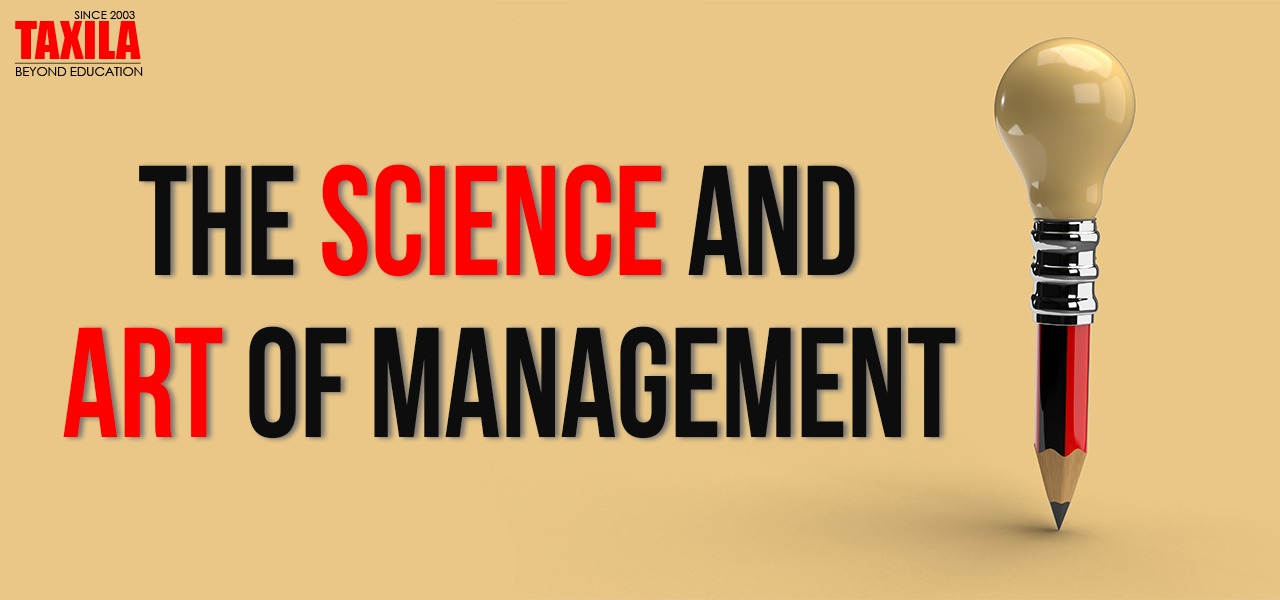
“Management is a multipurpose organ that manages a business, manages manager, and manages workers and work.”
Peter Drucker
Management is an art and science both. It has many components of science like being predictive and proving the theory through facts, but at the same time, it also has many components like developing the skills by practice and intuition.
Science is an advanced field of knowledge supported by proofs and predictions. A scientific approach helps in defining and measuring intangible elements. Management is always goal-oriented and a universal process or theory. Basically, it is an activity and at times a group activity. It is a dynamic activity that establishes a system of authority
On the other hand, art advances by practice and is based on feelings, intuition, and guesses, not proofs. It describes the opinion and expressions of the artist. But it is not definite and can change with the feelings and emotions of the artist. These feelings affect the expressions and the resultant outcome is also changed.
For example, In a chemistry practical the results remain samthee in a practical mixture of chemicals, meaning the practitioners know beforehand what amount of chemicals is to be mixed to get a new chemical. But an artist just has a vague idea of what he is going to get after the whole activity.
In another example, a painter, before making a portrait has an unclear picture in his mind, that he is going to draw a landscape or a Radha-Krishna painting. It is only after the completion of the picture that he comes to know what he has actually created. This creation is predefined in science but not in art.
Throughout the world, management has been recognized as a scientific process since the 1950s. But it does not mean that Indians were not aware of the concept of management before the 1950s. We had management practitioners in our country long before the western world started announcing the management theories. The western management theories suit the western world but the eastern world or less resourceful countries have different needs from the developed countries of the west, hence their management needs are also different.
If we talk about the western lifestyle and the theories given by western scholars like Peter Drucker, Henry Fayol, Taylor, Stephen P. Robbins, etc. have given us marvelous management theories which are in practice and have proved their significance in certain areas of their country’s economy and not only in their country but also worldwide these theories have made their place
But small, underdeveloped, and developing countries like India cannot afford such luxurious lifestyles of theirs; it is not wise for them to follow the management techniques of the western countries which are richer than us in resources.
The scientific part of modern management should be accepted universally, but the artistic side of management is not to be ignored when it comes to applying management theories in the real world. The countries should know the art of developing the theories suiting their socio-cultural, geographical, and economic surroundings, the way we Indians developed the art of our management systems suitable for our environmental needs.
Our ancient management systems were working on the sustainability of the planet, rather than encouraging consumerism in society. Though scholars from different places in different directions are working hard on the ancient Indian literature to find out the management and other theories of life still much is unexplored and needs attention.....If budding managers start working on these ancient management skills and theories and master the ancient art of Indian management, they may change the face of Indian businesses and the Indian Economy may prosper once again.

Dr. Alka Jain
Ph.D. MBA
Willing to benefit the society and economy with her dual experience of corporate and academic fields.

